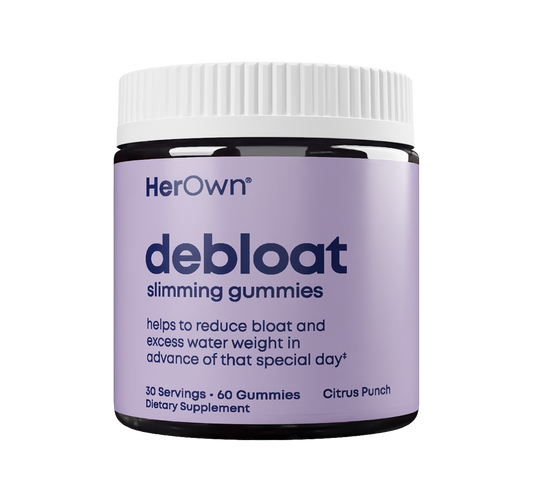-
Vendor:Her Own
Debloat Slim & Tone, 30 Gummies
Regular price $17.99Regular priceUnit price per
Learn
Browse menopause articles
We're getting real about hormones — because when it comes to managing your symptoms, knowledge is power.

Q&A with Dr. Liss, OB-GYN
What health risks are associated with weight gain during menopause?
How does stress affect weight gain? How can I manage it?
Does menopause cause weight gain?
What are some tips on how to lose menopause weight?
What are some tips on how to lose weight after menopause?
How long does menopause weight gain last?
Can omega-3 fatty acids help with menopausal weight gain?
What role does physical activity play in managing menopausal weight gain?
How do hot flashes and night sweats affect weight management?
Are there specific dietary supplements that can help with menopausal weight gain?
How does estrogen affect body fat distribution during menopause?
Can improving gut health reduce abdominal fat?
How can I improve my gut health to manage menopausal weight gain?
How can I reduce abdominal fat during menopause?
What is the connection between menopausal weight gain and gut health?
How does physical activity impact estrogen levels and weight management during menopause?
Are there vitamins for menopause weight gain?
Is it safe to use GLP-1 medications with hormone therapy?
Can a GLP-1 help with menopause-related weight gain?
















